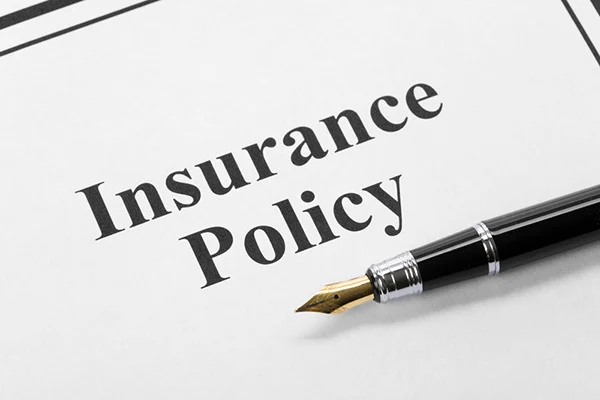Understanding Different Types of Insurance Policies is crucial in order to find a protection plan that best meets your needs and protects you against unexpected circumstances. Insurance provides financial security against unexpected events. Auto, home, and health insurance are some of the most widely purchased forms of coverage, while life insurance plans with savings features that build cash value can also provide long-term protection.
Life Insurance
Life insurance is an integral component of financial planning and legacy planning, offering two main forms: term and permanent (also referred to as whole or whole life). Term policies offer protection for a set period—typically 10–30 years—while permanent policies can provide coverage throughout an individual’s entire lifetime, possibly accruing cash value over time.
Permanent policy options include whole-life and universal-life policies. Both offer lifetime coverage that builds cash value to be borrowed against or used as income in retirement.
Whole life policies provide both guaranteed death benefits and fixed annual premium payments throughout their term of coverage, while universal life allows for customized premium payment schedules. Indexed universal life policies offer permanent life coverage that may grow in value tax-deferred, depending on the performance of an index.
Auto Insurance
Automobile insurance is a form of property and casualty insurance designed to cover you and anyone listed on your policy in case they’re involved in an accident. Auto policies are required by most jurisdictions and cover a wide array of expenses should an accident occur, with specific limits and deductibles detailed on its declarations page.
Deductibles are the portion of each claim that you must cover before your insurer begins covering costs. They may apply per policy, incident, or as a percentage of total loss—typically, increasing your deductible leads to lower premiums.
When selecting an auto policy, it’s essential to strike a balance between cost and coverage. Comprehensive coverage can increase your premium but protects against damage from natural disasters and theft; premium and deductible amounts vary based on many factors, including claims history, location, age, creditworthiness, and coverage amounts. Policies typically have six or one-year time frames that renew; therefore, it is beneficial to review them periodically so as to stay aware of any changes that might impact your financial security.
Homeowners Insurance
Homeowner’s or property owners’ insurance provides financial protection against disasters that could destroy personal possessions, buildings you live in, or other structures on your property. There are various forms for homeowner’s policies available; typically, different versions of standard HO-2 and HO-3 forms offered by insurance companies may differ slightly in coverage and perils covered.
Many insurers provide extra protection through special endorsements. For example, some policies include an ordinance or law endorsement that reimburses for additional rebuilding costs to meet new building codes or local laws that have come into effect since your house was built.
Some insurers also provide Dwelling Form or Renters’ Policies for properties that do not qualify for standard homeowners’ policies due to age, risk, or underwriting considerations. This form of insurance typically covers your dwelling as well as some personal belongings but excludes certain risks, such as earthquakes or floods. Many providers also offer riders that increase coverage or lower deductibles, but these come at an extra cost.
Commercial Insurance
Commercial insurance provides businesses with protection from financial exposure they could never manage on their own. Policies typically cover both property and casualty exposures; types of property coverage include business interruption, inland marine and boiler and machinery coverage, while casualty policies often cover general liability, workers compensation professional liability, and crime liabilities. Landlords frequently require tenants to have commercial policies when leasing an office space.
When searching for commercial insurance, an independent broker-agent will assess your business operations and the associated risks in order to select appropriate policy limits, exposure bases, and classification formulas. Furthermore, selecting deductibles could significantly decrease premium costs.
Commercial property coverage helps minimize disruption from unexpected incidents by covering damage or loss to equipment, inventory, furniture, and signage. This type of coverage also covers replacement costs should anything go missing and is often included as part of a Business Owners Policy (BOP), making them perfect for small “main street” businesses such as hardware stores, barber shops, greeting card companies, or accountant offices.
Health Insurance
Health insurance helps cover costs associated with visits to doctors, prescriptions, and medical and surgical services provided. Most people obtain health coverage either through an employer, a Medicare or Medicaid government program, or privately purchased plans. There may also be limited private options available.
Certain health insurance policies require policyholders to pay an up-front co-payment; others employ cost-sharing arrangements in which policy holders pay a percentage (such as 20%) of bills while insurance providers cover any remaining amount.
The cost of health insurance varies significantly based on coverage type and scope, deductible amount, and network provider network. Some plans require policy holders to use only in-network doctors, hospitals, and pharmacies in order to reduce out-of-pocket expenses; others offer lower premiums if opting out. The Affordable Care Act Marketplace categorizes plans into 4 “metal” levels: Bronze, Silver, Gold, and Platinum, but that has nothing to do with quality of care; instead, these levels reflect differences in monthly payment amount as well as when receiving care is received.




